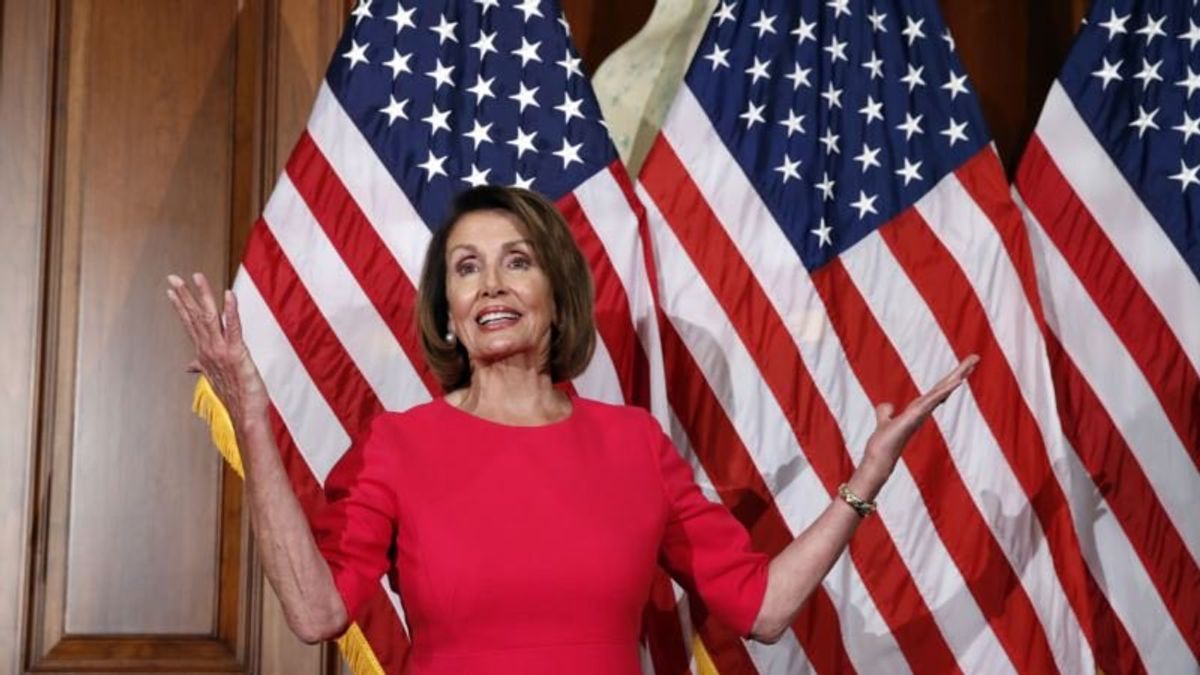
House Democrats Urge Sweeping Reforms to Boost Voting Access
House Democrats Urge Sweeping Reforms to Boost Voting Access

WASHINGTON —
House Democrats are unveiling a comprehensive elections and ethics reform package that targets what they call a “culture of corruption in Washington” and aims to reduce the role of money in politics.
The bill, among the first to be considered as Democrats take control of the House after eight years, would make it easier for citizens to register and vote, tighten election security and require presidents to disclose their tax returns.
Dubbed the “For the People Act,” the legislation marks an effort by Democrats to set a tone of good government as they take the majority following historic gains in the midterm elections.
SEE ALSO:
Pelosi Returns as House Speaker to Face Trump Challenge
Rep. John Sarbanes, a Maryland Democrat who is leading the reform effort, said the bill demonstrates that Democrats are “responding directly to the American people and what they want to see in our democracy,” as shown by the election results.
The bill “sets the table” for Democratic control of the House over the next two years, Sarbanes told reporters this week. Passage will prepare the way for efforts to raise the minimum wage, lower the price of prescription drugs and protect the environment, he said.
The bill “tells the public, ‘Pull up a chair. You’re at the table,’” rather than watching events from afar, Sarbanes said.
While some elements of the bill have bipartisan support, the overall package is unlikely to win approval in the Republican-controlled Senate. Opposition also is expected from President Donald Trump.
Senate Majority Leader Mitch McConnell, R-Kentucky, has pronounced the reform measure dead on arrival in the Senate, a claim Sarbanes embraced as a badge of honor.
SEE ALSO:
House Passes Funds to Re-Open Government, Not for Wall
“You could stamp on this thing ‘McConnell-rejected,’ and it would immediately give it more credibility,” Sarbanes said. The legislation was not built for McConnell or any lawmaker, Sarbanes added: “This was built for the public.”
House Speaker Nancy Pelosi also touted the bill, saying it would return power to the American people.
The wide-ranging legislation will “restore integrity to government, so that people can have confidence that government works for the public interest, not the special interests,” the California Democrat said Thursday after being elected to the lead the House for the second time.
The bill would create automatic national voter registration while expanding access to early and online registration. It also would increase federal support for state voter systems, including paper ballots to prevent fraud, and restore voting rights for ex-prisoners.
The measure also would restore protections included in the 1965 Voting Rights Act and guard against efforts by state officials to purge voting rolls.
“We want to make it easier to vote — not harder,” Sarbanes said, citing voter suppression efforts last year in Georgia, Ohio and other states.
The bill would set up a public financing system for House races and require political groups to disclose donors. Social media platforms such as Facebook and Twitter would be required to disclose who paid for online ads, similar to existing rules for television and other media.
In a move designed to reduce partisan gerrymandering, the bill calls for states to establish independent redistricting commissions to draw boundaries for future congressional districts.
On ethics, members of Congress would be barred from serving on corporate boards and could not use taxpayer dollars to settle employment discrimination cases.
In a nod to Trump’s resistance to releasing his tax returns, the bill would require presidents to release at least 10 years’ worth of returns. The bill also would reauthorize and enhance the Office of Government Ethics, which has clashed with Trump.
Sarbanes and other supporters said the election security measures are particularly important as the 2020 election nears.
Predicting “historic turnout” in two years, Sarbanes said officials must be prepared, not only for increased participation but for attempts at sabotage from foreign and domestic adversaries.
“If we’re not ready for that in all the ways (the legislation) seeks to ensure, then we could end up with a train wreck,” he said.
 Impeachment? Trump Says He’s Too Successful for ThatNext PostClimbing the Hill: New Legislators Are Sworn In
Impeachment? Trump Says He’s Too Successful for ThatNext PostClimbing the Hill: New Legislators Are Sworn In





